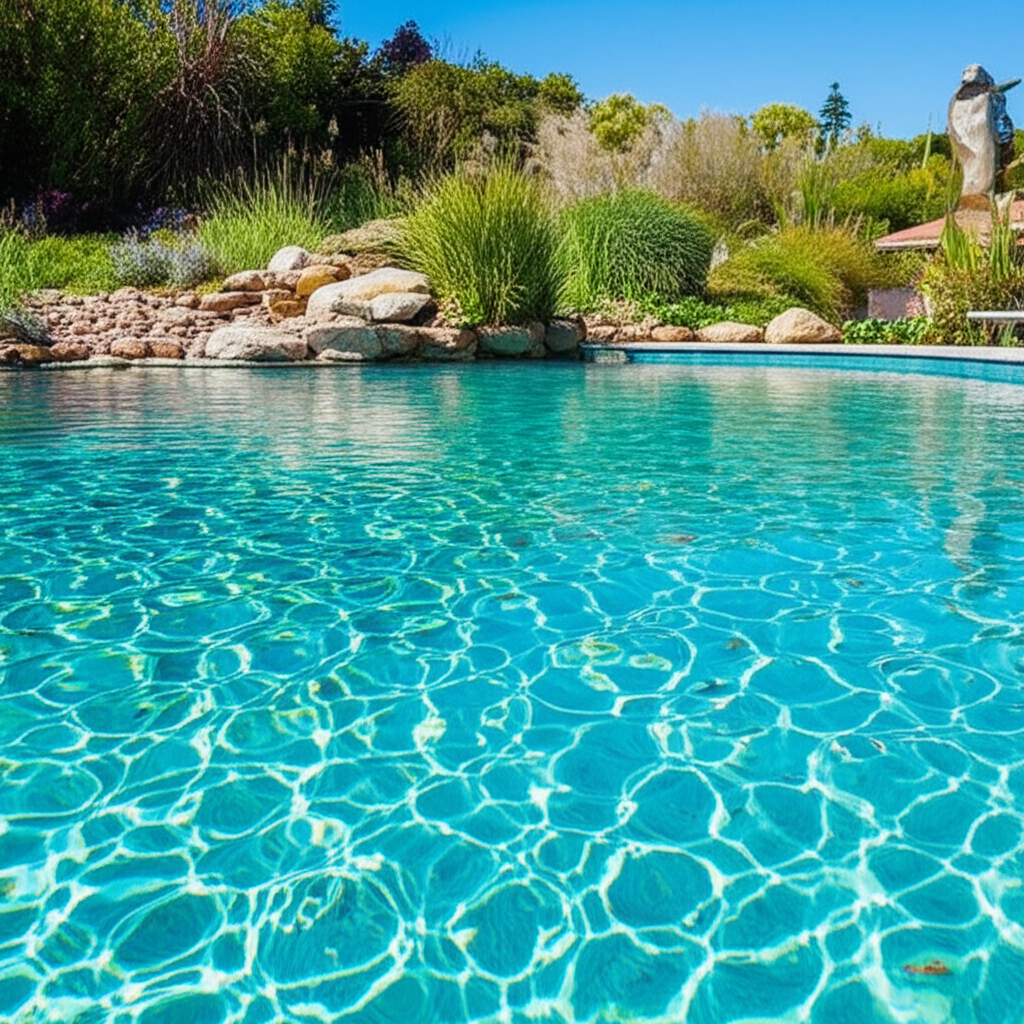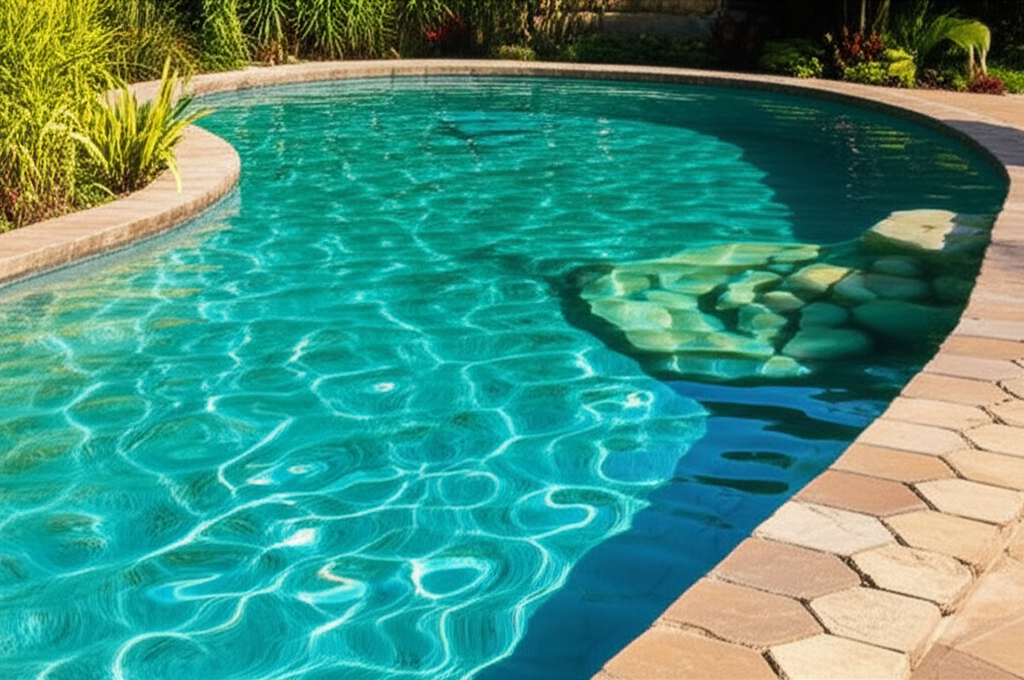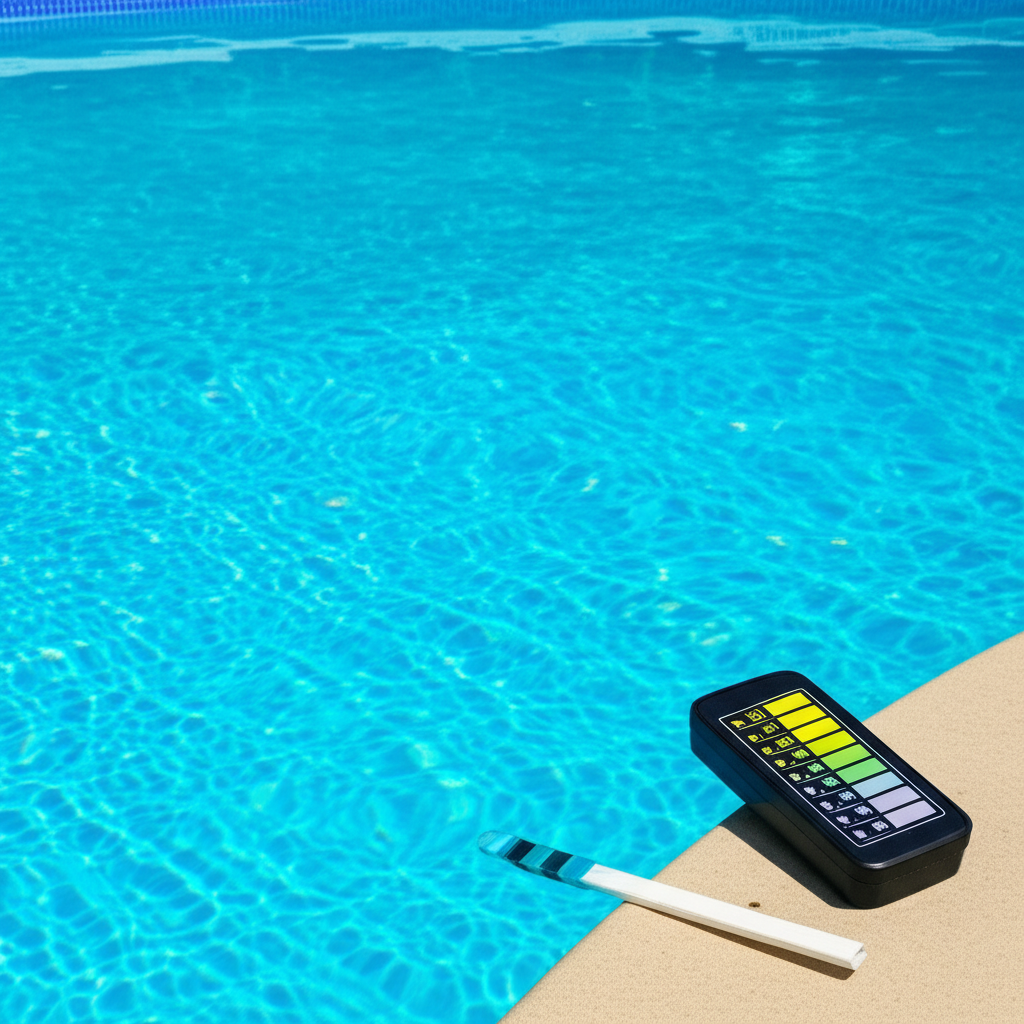- What is a Natural Pool?
- The Secret to Eco Pool Care: A Balanced Ecosystem
- Designing Your Natural Pool for Minimal Upkeep
- Natural Pool Maintenance: Simplicity at Its Best
- Benefits Beyond Green: Why Choose an Eco Pool?
- Embracing the Natural Pool Lifestyle
Natural Pool: An increasing number of homeowners are discovering the serene beauty and sustainable advantage of a natural pool. Far from being a mere trend, these biologically filtered swimming havens offer a refreshing alternative to chemical-laden conventional pools, promising clearer water and a significantly reduced environmental footprint. What surprises many is that this commitment to nature doesn’t lead to higher maintenance; instead, with the right design and understanding, natural pools often boast effortless eco pool care.
What is a Natural Pool?

At its core, a natural pool (or swimming pond) is a self-cleaning ecosystem designed for human enjoyment. Unlike traditional pools that rely on chlorine or other harsh chemicals for sanitation, a natural pool uses a clever combination of aquatic plants, beneficial microorganisms, and biological filtration to purify its water. Typically, it comprises two distinct zones: a swimming zone, where the water is pristine and inviting, and a regeneration zone, which is a shallow, plant-filled area that acts as the pool’s natural kidney. These zones can be integrated seamlessly or separated by a submerged wall, allowing for maximum design flexibility. The magic happens as water circulates between these zones, passing through gravel beds and plant roots where nutrients are absorbed, and harmful bacteria are neutralized, leaving the swimming area sparkling clean.
The Secret to Eco Pool Care: A Balanced Ecosystem
The true genius behind the natural pool’s low-maintenance appeal lies in its self-regulating ecosystem. Once established, this system operates much like a miniature lake or pond, where nature steps in to do the heavy lifting. The plants in the regeneration zone are not just decorative; they are vital participants in the purification process. They absorb excess nutrients that unwelcome algae would otherwise feed on, effectively starving them out. Meanwhile, microorganisms residing in the gravel and on plant roots break down organic matter, converting it into harmless substances.
This intricate balance means there’s no need for daily chemical testing, adding shock treatments, or worrying about skin and eye irritation. Instead, your primary task becomes one of stewardship: ensuring the ecosystem remains balanced. This passive form of filtration makes natural pools incredibly energy-efficient, often requiring only a pump to circulate water between zones, running far less frequently than a conventional pool filter. The fundamental principle is that a healthy, balanced natural environment will inherently be clean.
Designing Your Natural Pool for Minimal Upkeep
The “effortless” aspect of eco pool care begins with thoughtful design and installation. A well-designed natural pool will inherently require less intervention. Key considerations include:
Size and Proportion of Regeneration Zone: A sufficiently large regeneration zone (typically 30-50% of the total pool area) is crucial for effective biological filtration.
Plant Selection: Choosing the right native and non-invasive aquatic plants is vital. Plants like water lilies, irises, and marginal grasses not only look beautiful but are excellent at nutrient absorption and provide habitat for beneficial insects.
Substrate Materials: Using appropriate gravel or specific filtration media in the regeneration zone creates the ideal environment for microorganisms to thrive.
Water Circulation: While minimal, some level of water circulation between zones is necessary to ensure consistent filtration. This can often be achieved with low-energy pumps.
Investing in a proper design from the outset ensures that the pool’s ecosystem can self-regulate efficiently, significantly reducing the need for manual intervention down the line.
Natural Pool Maintenance: Simplicity at Its Best
Compared to the rigorous chemical regimens of traditional pools, Natural Pool maintenance truly champions simplicity. Most of your duties will revolve around seasonal tasks rather than daily chores:
Spring Clean-Up: As the weather warms, you might skim off any accumulated debris, prune back dead plant material from the previous season, and ensure your circulation pump is running smoothly. This is also a good time to check water levels and top up if needed.
Summer Enjoyment: During peak swimming months, maintenance is usually minimal. Skimming leaves and surface debris as needed is often the most frequent task. The established ecosystem typically handles the rest.
Autumn Preparation: As leaves begin to fall, more frequent skimming or netting is recommended to prevent excessive organic matter from decomposing in the swimming zone. Preparing plants for winter may involve some trimming.
Winter Rest: In colder climates, pumps are typically removed or turned off, allowing the pool to freeze over naturally. It becomes a beautiful, icy landscape, a testament to its natural resilience.
One of the most satisfying aspects is the absence of chemical handling. You won’t be lugging buckets of chlorine or pH adjusters. Instead, you might spend a bit of time admiring the dragonflies flitting over the regeneration zone or observing the frogs that have made your eco pool their home. Occasional vacuuming of organic sludge from the swimming zone bottom might be necessary, but far less frequently than a conventional pool requiring regular sediment removal.
Benefits Beyond Green: Why Choose an Eco Pool?
The advantages of a natural pool extend far beyond its eco-friendly care and chemical-free operation:
Health and Wellness: Swimming in naturally purified water is gentle on the skin, eyes, and respiratory system. There’s no harsh chemical odor, just the fresh scent of nature.
Aesthetic Integration: Natural pools blend seamlessly with the landscape, creating a beautiful, tranquil water feature that enhances garden aesthetics year-round, even when not in use for swimming.
Biodiversity: They create valuable habitats for local wildlife, attracting beneficial insects, birds, and amphibians, enriching your garden’s ecosystem.
Lower Running Costs: With no need for expensive chemicals and often lower energy consumption due to simpler filtration systems, natural pools can offer significant savings on annual running costs.
Embracing the Natural Pool Lifestyle
Choosing a natural pool is more than just selecting a swimming option; it’s embracing a lifestyle that values sustainability, health, and a deeper connection with nature. It’s an investment in a beautiful, dynamic, and surprisingly low-maintenance feature that brings tranquility and ecological balance to your home. With thoughtful design and an understanding of its living ecosystem, the promise of effortless eco pool care is not just a dream, but a refreshing reality.


